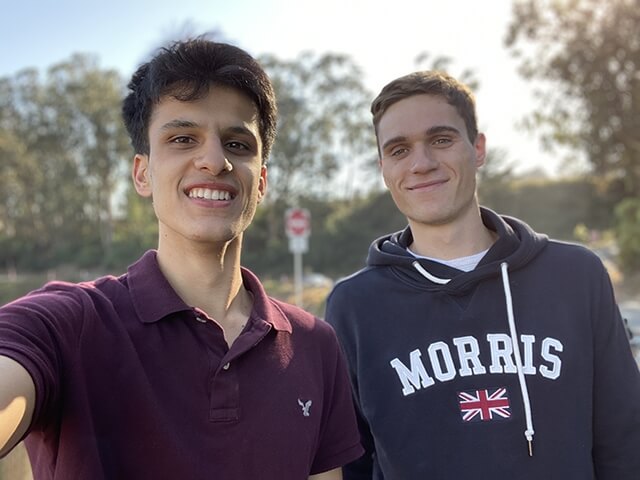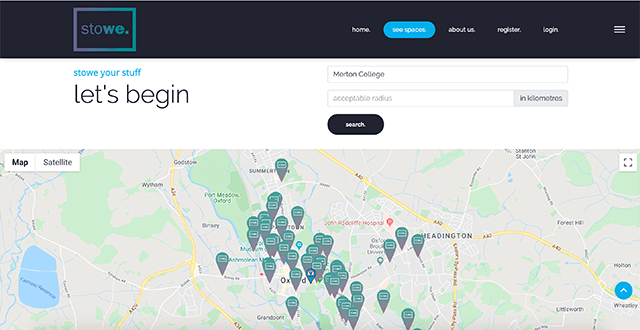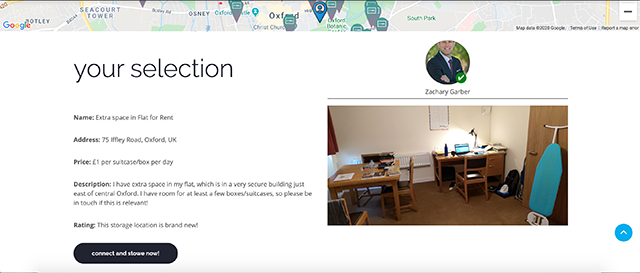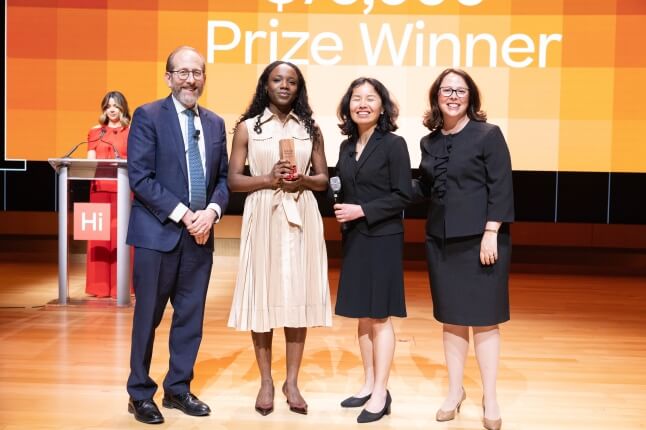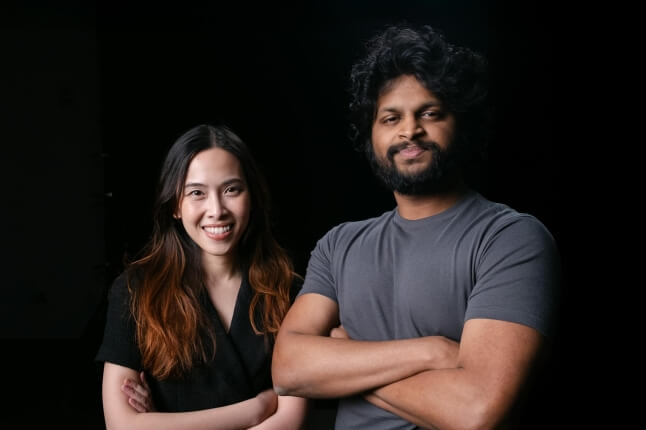News
Master's student Shravan Nageswaran co-founded Stowe to connect people who need storage with people who have space. (Photo provided by Shravan Nageswaran)
When the summer holidays rolled around, Shravan Nageswaran faced a dilemma.
Then an international undergraduate student at Imperial College in London, he had five heavy suitcases he needed to store until classes started again in the fall. But the only options he could find were expensive storage lockers located in distant suburbs.
“One of my classmates, Luis Wenus, had a friend living in London who said ‘you can store your things in my basement, just give me 10 pounds or buy me a drink,’” Nageswaran said. “That’s exactly what he did, and it gave us an idea that led to the formation of Stowe.”
Stowe, a startup co-founded by Nageswaran and Wenus, is a platform that connects people who need storage with people who have space. A sort of “Airbnb for storage,” the application enables storage providers to list available space, everything from an empty attic to extra room in an office, which users can browse by location.
On average, bookings through Stowe are 60 percent cheaper than the fees charged by commercial storage companies, said Nageswaran, who is pursuing a computational science and engineering master’s degree at the Institute for Applied Computational Science, within the Harvard John A. Paulson School of Engineering and Applied Sciences.
Stowe co-founders Shravan Nageswaran and Luis Wenus launched the startup to solve storage problems they encountered while attending Imperial College in London. (Photo provided by Shravan Nageswaran)
“Most international students realize this is a problem, but they don’t stop to think about it because there has always been only one option: these massive storage lockers,” he said. “Since they monopolize the industry, they get away with charging a fortune.”
For instance, one of Nageswaran’s classmates paid to fly six suitcases back to China each summer because it was cheaper than the 700 pounds he’d have to pay for commercial storage near London.
That story was similar to many Nageswaran and Wenus heard as they prepared to launch a beta version of Stowe at Imperial College last summer. The concept quickly caught on.
“As international students, you can sometimes feel lost. You are in this big city, and then one day your accommodations expire and you are left on your own,” he said. “It can be a bit shocking.”
They spent the next few months developing a fully functional web application based on student input, such as concerns about security.
The team vets all storage providers, who must provide valid ID before they can list space. If an item does go missing, a student could treat it as a petty crime, he said. Stowe also incorporates a storage provider rating system and insures each financial transaction.
Stowe enables users to browse available storage space by location. (Image provided by Shravan Nageswaran)
The app, which is free for users, generates revenue by taking a percentage of storage fees. A chat function enables users to negotiate prices, which tends to give more power to storage seekers, Nageswaran said.
After building these features, they tested Stowe over the winter holidays at Oxford University, since undergraduates must move out because the university rents their rooms. In only a week, more than 50 storage spaces were listed, most by postgraduate students with year-round accommodations.
“The constituent colleges at Oxford were big proponents of Stowe,” he said. “Because a lot of the people who listed places were postgraduates, they found that it was a great way to connect the Oxford academic community.”
Drawing on that experience, the co-founders plan to implement Stowe in Cambridge and Exeter universities for the spring holidays, and then launch in Boston, New York City, and the entire United Kingdom this summer.
As they’ve expanded the platform, they’ve faced a number of challenges, such as refining their business model and finding a loyal user base.
Nageswaran recalls their early exuberance, which caused the co-founders to plow ahead so quickly they didn’t fully understand their customers.
Beyond providing storage for those who need it, and helping individuals with open space earn some extra income, Stowe has played a role in bringing communities together, Nageswaran says. (Image provided by Shravan Nageswaran)
“We have two separate users on Stowe, people who are looking for storage space and people who have space,” he said. “One of the challenges has been creating the platform in such a way that it is super-simple for both people to use it. That involves responding to user feedback times two.”
Nageswaran developed invaluable business skills as a member of the Venture Incubation Program at the Harvard Innovation Labs. He’s been able to refine the business idea and learn from seasoned entrepreneurs.
Now, as a semi-finalist in the President’s Innovation Challenge, Nageswaran will join an intensive, 12-week incubator program that will provide additional support for the startup.
And with 400 users already, gathered through organic marketing in Oxford and London, he and Wenus are gearing up for fast growth as Stowe launches in other university towns.
“As an entrepreneur, the day we got our first sale in Oxford—the day it popped up that someone was using the thing we built—I was in complete euphoria,” he said. “But seeing that first sale, it is less about money in the bank as much as it is about helping someone by providing a solution to a problem that I faced myself only a few months back. And it has been even more gratifying to see people in the local community making connections through Stowe. In a world where it seems like we are increasingly hostile, I think our local communities need to be stronger than ever.”
Topics: Entrepreneurship
Cutting-edge science delivered direct to your inbox.
Join the Harvard SEAS mailing list.
Press Contact
Adam Zewe | 617-496-5878 | azewe@seas.harvard.edu

